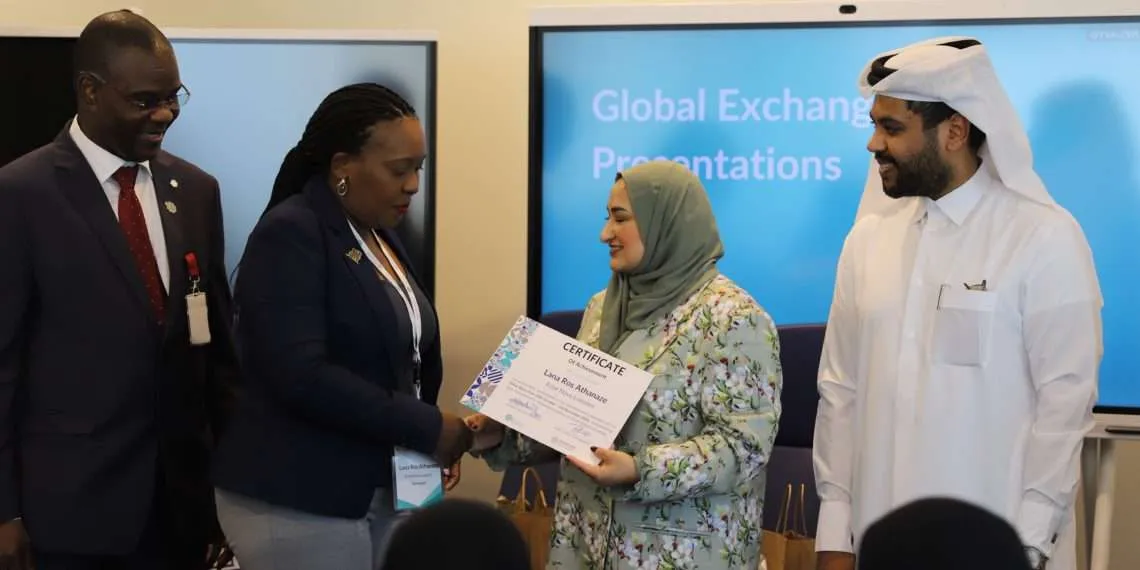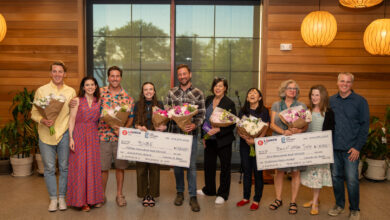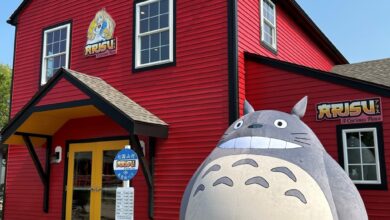More Than A Workspace – Flywheel Coworking Vows To Help Entrepreneurs Roll
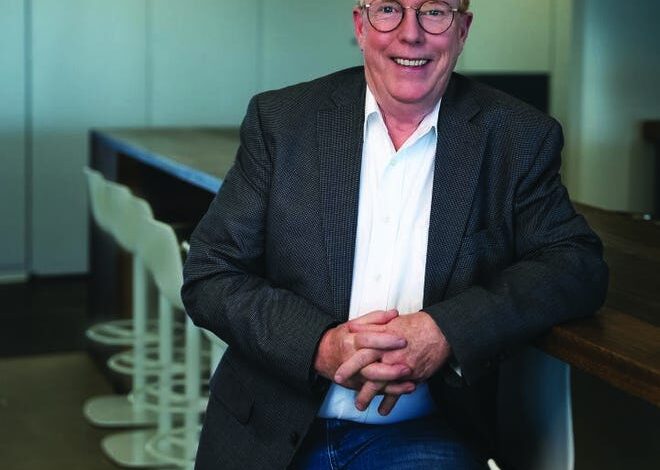
Flywheel isn’t just any coworking space. Co-founder Peter Marsh likens it to a YMCA for businesses – with a community of members and a thoughtfully designed workspace.
Marsh uses the comparison to explain the individualized memberships available at Flywheel Coworking, the anchor tenant at Crescent Startup Community and Innovation District being created on Poinsett Highway in Greenville.
“Our members don’t sign rental agreements. They don’t have to sign a lease. It’s month-to-month. They tailor their membership plans to their specific needs,” says Marsh, who helped found Flywheel in 2014.
“If all you need is a corporate address and mail services, we do that. If you need that, plus you want to use our space five days a month to meet clients, we have a five-day plan. We have a 10-day plan. And we have monthly plans for people who want to base themselves primarily out of the space.”
Members pay to reserve desks, offices and suites. Or they can purchase a membership and grab whatever desk or space is open.
Crescent One, the first building in what is planned to become a mixed-use district, is being developed and renovated by Hartness Development, Flywheel, Furman University’s Hill Institute for Innovation and Entrepreneurship, and other partners and entrepreneur support organizations.
Flywheel will have 40 private offices and 60 coworking desks in addition to meeting and event spaces, a conference center, and a common social area with a beverage bar. Flywheel will use more than half of the 47,000-square-foot building.
“We provide a turnkey, shared workspace that’s affordable, pre-furnished, has high-bandwidth internet, lots of amenities and spaces that our members can use for educational programming, seminars and conferences,” says Marsh, whose job is to develop new locations as Flywheel expands its footprint.
“Coworking at its core is providing the economic efficiency of shared workspace to freelancers, solopreneurs, consultants, startup company founders. And a lot of our members are software developers and digital creatives.”
Other tenants in the building will complement, and perhaps become mentors, for earlier-stage companies in the Flywheel community, Marsh says.
All tenants in the Crescent Innovation District will receive corporate memberships in Flywheel. The district at 701 Poinsett Hwy., about halfway between Furman University and Downtown Greenville, is the site of the former Pepsi-Cola Bottling Company, owned by the Hartness family since 1940. The developers also purchased the site of the Piedmont Shirt Factory at 111 Henry St.
Crescent One is scheduled to open in July, and leasing is available. Olivia Evans, originally from Spartanburg, is the community manager for the property.
“All of our locations are locally operated by community managers and partners,” Marsh says.
Flywheel is based in Winston-Salem, North Carolina. But Marsh and others have been in and out of Greenville since 2019. The company has been offering social, networking and educational programs since 2021.
“We’re excited to be opening in Greenville. Tremendous energy. Wonderful downtown revitalization. We’re excited to be part of that community energy and to be part of the vibrant entrepreneurship ecosystem that Greenville enjoys,” Marsh says.
He gives credit to Village Launch, Greenville Starts, NextGEN, the Small Business Development Center, Furman’s Hill Institute, and other organizations that promote and provide resources to businesses of all sizes.
Flywheel will coordinate with those organizations, some of which will have offices at Crescent One. But Marsh says Flywheel has also identified missing essentials, including a midsized conference center.
“There is a significant need in Greenville for an affordable conference center that can host meetings of 100 to 300 people. That’s hard to find right now,” he says.
Crescent will ultimately offer the entrepreneur community a place to live, learn, work, play and innovate on one property – including an outdoor space called The Shed.
But what makes Flywheel different from other coworking spaces is its “mission,” Marsh says.
The for-profit Flywheel LLC provides space, services and amenities.
The nonprofit Flywheel Foundation runs investment funds; conducts events and conferences; and provides a “guarantee” to its members, Marsh says.
“We bring those two things together. The guarantee we make to all of our members is that we will accelerate their personal and professional development. That means we don’t just give you a key to an office, and say, ‘Let me know if you need coffee,’” he explains.
“We give you a key to an office and also ask, ‘How can we help you connect to customers? Do you need capital resources? Do you need educational or professional development resources?’ We actively look for ways to provide that to our members. That’s an extremely different business model from virtually all other coworking operators.”
One program, called a Retail Lab, is created for people who have side gigs.
“They might be building products or services that they’re selling through e-commerce that could potentially become an entire product line or a brick-and-mortar presence in the community,” says Marsh, a founding board member of the Flywheel Foundation.
“Our Retail Lab helps them understand how to tackle business basics and marketing and customer acquisition and how to go about brick-and-mortar if that’s where they want to go. We focus as much time on developing the entrepreneur as we do on developing the business.”
Flywheel also hopes to involve residents who live nearby.
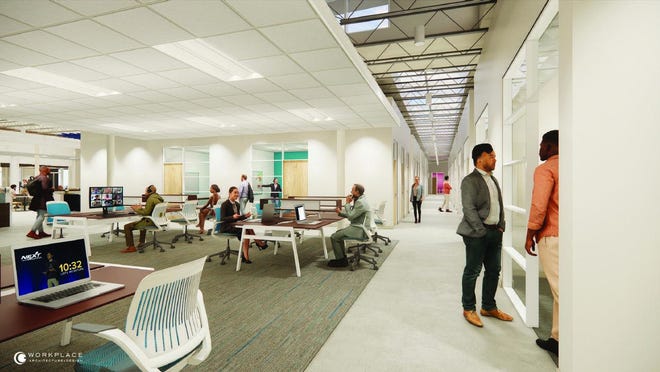
“It’s essentially a revitalization zone, and we’re one of the first major development commitments in that area,” Marsh says. “There is a rich history in the surrounding neighborhoods. And we want those neighbors to also be involved in our entrepreneurial activity.”
In Greenville and at four other locations currently, Flywheel is supporting businesses and creating an environment of mentorship.
“The idea that we’re building a large-scale, dense community of entrepreneurs is something new in Greenville. There isn’t anything like that,” Marsh says.
“Our mindset is economic development through entrepreneurship. We do it by creating the infrastructure, then we bring in the programming with our foundation. That’s our passion. That’s our mission.”
Hartness Development is a collection of planning, design, construction, real estate and finance professionals who create community-oriented commercial, residential and hospitality projects.

